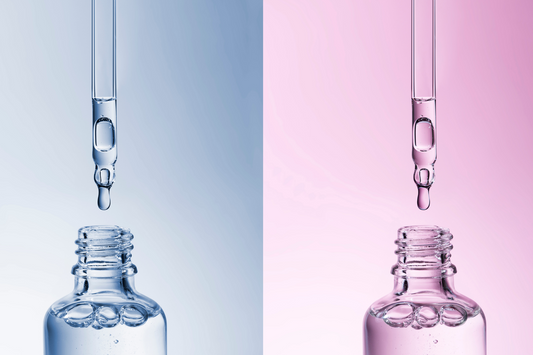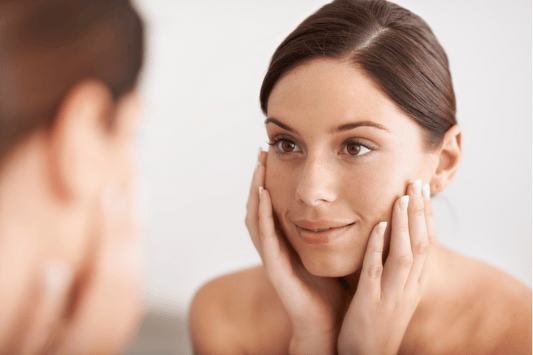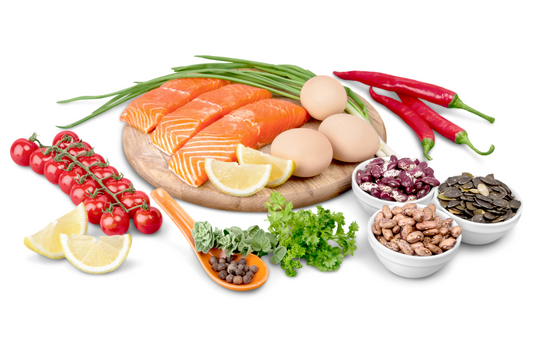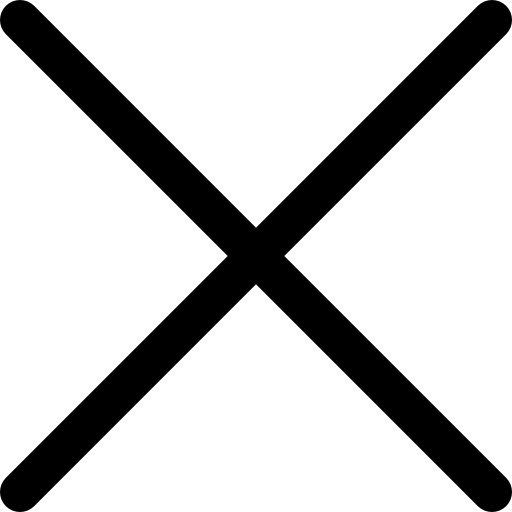While there are many common causes of hair loss, vitamin deficiency could be to blame. In addition to hair loss due to a vitamin deficiency, you may notice other symptoms, such as muscle weakness, brittle nails, and fatigue.
Taking care of your hair is a complicated and delicate process, and the fact that vitamins are involved, too, can make it an even more complex one.
If hair loss feels overwhelming, you’re not alone— we’re here to help you navigate hair loss caused by vitamin deficiencies. There are several ways that you can take care of your hair—and the rest of your body too.
Continue reading to learn more about vitamin deficiencies and some remedies to try that can get your hair looking healthier than ever.
Is Hair Loss Common?
Interestingly enough, various factors can lead individuals to experience hair loss. Many people experience one or more of these factors. While it might seem daunting, isolating, or overwhelming if you are experiencing them, hopefully we can help.
The truth is that several different vitamin deficiencies can contribute to hair loss, so you might have to do a bit of testing with your doctor to get to the bottom of it. Let’s talk more about which vitamin deficiencies specifically can lead you to lose some hair.
What Vitamin Deficiencies Cause Hair Loss?
Learning more about the vitamin deficiencies that lead to hair loss can help you narrow down the solutions to thicker, fuller looking hair.
Vitamin D
Vitamin D deficiency could lead to hair loss because this critical vitamin is helpful when it comes to stimulating your hair follicles and maintaining thick, healthy strands. Vitamin D affects the growth and differentiation of keratinocytes. Evidence points towards vitamin D having immunoregulatory and anti-inflammatory effects. Because of this, low levels of vitamin D have been associated with alopecia areata.
Vitamin C
Antioxidants are essential for maintaining your healthy hair and overall health. One vitamin that can help with this is vitamin C, or ascorbic acid. It’s an impactful antioxidant that everyone needs to help support their immune system and combat damage caused by free radicals and oxidative stress. Because it aids with the synthesis of collagen fibers, having a deficiency can lead to dry, brittle hair.
Vitamin B7 (Biotin)
Do you feel that your hair is weak, brittle, and increasingly falling out? It’s possible that another vitamin, biotin (vitamin B7), is to blame for this. If you have a biotin deficiency, you might notice that a side effect/symptom of this is hair shedding. Alternatively, if you are noticing increased shedding, you may suffer from alopecia. Biotin also aids the body in metabolizing fatty acids. Therefore, a biotin deficiency may disrupt your body’s ability to make use of your omega-3 and omega-6 fatty acids.
Vitamin B5 (Pantothenic Acid)
B vitamins are required to harvest red blood cells needed to carry oxygen to the scalp, thereby assisting in creating new hair from the follicles. One important B vitamin vital to combating hair loss is vitamin B5. This vitamin can enhance the growth of hair. Due to this benefit, several different hair products contain vitamin B5.
Vitamin A
Another essential vitamin in supporting healthy hair is vitamin A. A deficiency in vitamin A could destroy hair follicles and cause hair loss. Because of this, hair growth is stunted, leading to thinner hair.
Vitamin E
Having a vitamin E deficiency is rare but still possible. This essential vitamin helps with supporting the circulation of oxygen to the body and protecting against free-radical damage so that the scalp will be healthy and hair follicles will thrive.
Fatty Acids
Fatty acids omega-3 and omega-6 are important fatty acids that aid in hair growth. If you have a deficiency in these essential fatty acids, it may lead to hair loss on the scalp and eyebrows.
Other Vitamin Deficiencies That Can Contribute To Hair Loss
While the above vitamins may be the leading cause of your hair loss, there are a few additional vitamin deficiencies to have on your radar. Folic acid or low iron could also be the cause of your hair loss because of their roles in healthy cell growth and cell nourishment.
If you think you are dealing with a vitamin deficiency, talk to your healthcare provider to get a diagnosis and treatment plan.
How Can I Add These Vitamins Into My Diet?
While your body gets most vitamins and nutrients from everyday foods you eat, you’ll need to make sure you are eating the right ones.
Vitamin D. Some of the foods you could consider adding to your diet to boost your vitamin D intake include salmon, eggs, cheese, and beef liver. Milk, cereal, bread, and some yogurts can contain this important vitamin if they’re fortified for it (which is fairly common here in the U.S.). Being out in the sun is also a great way to get some vitamin D since UVB rays help your body synthesize vitamin D. However, it’s possible that being in the sun without sunscreen could damage your skin, so you might be best just taking a vitamin D supplement.
Vitamin C. Vitamin C cannot be stored in the body. Humans are naturally deficient in an enzyme known as L-gulonolactone oxidase, which is required for the synthesis of vitamin C. Therefore, you need to obtain it through your diet. Some foods that are packed with vitamin C are citrus fruits, spinach, green and red bell peppers, Brussels sprouts, broccoli, and potatoes.
B vitamins are also critical to healthy hair. Foods that contain biotin (B7) include meats, eggs, and nuts. Potatoes, nuts, beef, chicken, eggs, and dairy products are rich in vitamin B5.
Vitamin A is also another vitamin you’ll want to make sure you’re getting to support your hair. Typically, orange-colored fruits and vegetables such as pumpkin, squash, sweet potatoes, and carrots contain good amounts of vitamin A.
Vitamin E. Vitamin E-rich foods include leafy green vegetables, seeds, nuts, and oils such as canola. Corn and soybeans can also play an important role in obtaining vitamin E.
What Supplements Can Be Taken for Hair Loss?
Narrowing down what vitamins you’re deficient in will help you decide what supplements could help. Here are some supplements that can help support your hair health.
Iron
Iron is imperative because it is responsible for assisting the formation of hemoglobin. A deficiency in iron can slow down the oxygen that is being carried throughout the body. This directly affects the nutrients going to cells, which could inhibit the growth of hair follicles and shafts, leading to hair loss.
Some foods loaded with iron include peas, dried fruit (especially raisins and apricots) spinach, salmon, pork, and iron-fortified cereals.
If your diet does not have enough iron, you can always take an iron supplement.
Magnesium
If you are deficient in magnesium, it can cause hair loss and possibly even cause premature graying because of the part it plays in metabolism and metabolic reactions. To increase your magnesium levels, try a diet high in whole grains, seeds, nuts, leafy veggies, and legumes. This is also available in supplement form.
Selenium
Selenium is a lesser-known nutrient essential to maintaining healthy hair. Selenium makes selenoproteins which aid in new hair growth. If you are selenium-deficient, you may experience reduced hair growth.
As a bonus, this nutrient could reduce dandruff or even prevent it all together. Since the body does not produce selenium, eggs, tuna, and spinach are some naturally occurring sources to supplement this powerful nutrient.
Hair Loss Is Out, Hair Growth Is In
Vitamin deficiencies themselves may not be the root cause of your hair loss, but making sure to include key nutrients in your diet can help ensure your body has the tools it needs in order to maintain healthy hair.
Hair loss can be frustrating. Recently, nutraceuticals have emerged as popular options for combatting hair loss. However, while these are great ways to supplement essential nutrients to promote a healthy head of hair, we at Revela understand that this is not always enough to win the fight against hair loss. That’s why, in addition to our lead ingredient ProCelinyl, we have fortified our Hair Revival Serum with important nutrients such as Niacin (vitamin B3), Biotin (vitamin B7), Thiamine (vitamin B1), Pantothenic Acid (vitamin B5), and L-Methionine (an amino acid) to provide direct support and nutrition where and when it’s needed the most.
If you want to learn more about hair loss, Revela has plenty of resources that can get you one step closer to kicking hair loss to the curb.





